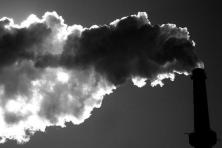Renewables thrive; coal power further dwindles during COVID-19 pandemic
Despite recent deep declines in energy demands with stay-at-home orders across the country, clean energy production has accelerated, and the U.S. is producing more renewable energy than coal power for the first time. While projections have shown renewable energy eventually surpassing coal power, it has happened far sooner than projected—welcome news for the variety of state commitments in achieving net-zero carbon emissions goals and transitioning to fossil-free electricity.
Flipping fleets, states, and countries to clean electricity
A no-brainer stimulus idea: flip the United States Postal Service fleet to electric. The USPS' fuel costs are about $500 million a year (the highest of any agency in the federal government), and the possibility of electrifying the aging fleet of delivery trucks would reduce maintenance and fuel costs for the cash-strapped agency and cut carbon emissions.
China is investing $1.5 billion in electric vehicle charging to give a boost to their economic recovery. Meanwhile, California is scaling up a first-in-US electric truck sale proposal that would require manufacturers to sell a certain percentage of electrified tractor trailers and other trucks. The California Air Resources Board estimates that once the new rule goes into effect, 20% of all trucks on the road in California would be electric by 2035.
Climate progress in the time of COVID-19: states push forward, even as the federal government pushes backward
A persistent vacuum in federal action means state-level leadership continues to be a key means to climate progress. A detailed survey from The Center for American Progress is the first of what will be a series highlighting the efforts of forward-looking states—as well as the undiminished need for national leadership on climate and clean energy.
Further underscoring the need for states to lead on climate, the Trump administration moved this week to block a Washington State law establishing safety requirements on oil-by-rail shipments within the state. The law was enacted last year amidst growing concern over the threat such shipments pose to both urban and rural rail-line communities in the Northwest.
The push to deregulate oil transport is just one front in the Trump administration’s campaign to undo states’ leadership and instead favor fossil fuel interests and industrial polluters. Former EPA head Gina McCarthy charges that the administration’s rollbacks of pollution rules show a callous disregard for communities hit hard by COVID-19.
And in some places, cities push ahead of states for clean buildings
St. Louis last week became the first city in the Midwest to pass strong building efficiency standards in support of the city's goal of eliminating community-wide greenhouse gas emissions by 2050. Buildings are a significant contributor to cities’ total greenhouse emissions; specific factors include heating and cooling systems, energy efficiency, and electricity use.
There are strong reasons for new construction to choose electrical systems for heating and cooking, in residential settings as well as commercial. Earlier this month, Vox reported that an accumulating body of research suggests that gas-powered cooking stoves are a health risk, concentrating pollutants inside homes—where air quality is totally unregulated. While many people remain attached to their gas cooktops, a growing number of professional chefs are dumping gas for induction ranges.
On the CS Blog: Environmental injustices exposed by climate change, COVID-19 underscore the need for environmental justice
On Climate Solutions’ blog, Oregon Transportation Policy Manager Victoria Paykar notes that the communities that have borne repeatedly the worst impacts of air pollution have also suffered disproportionately during the coronavirus pandemic.
Connecting the dots between the pandemic and environmental racism, she writes that “we must focus on creating policy solutions and programs in the face of COVID-19 and the climate change crisis that shrink racial and social inequities, while prioritizing benefits to vulnerable populations that will ultimately create positive externalities benefiting society at large.“
One thing you can do:Write a letter to your local news outlets about the connections between COVID-19 and the climate crisis.
|





